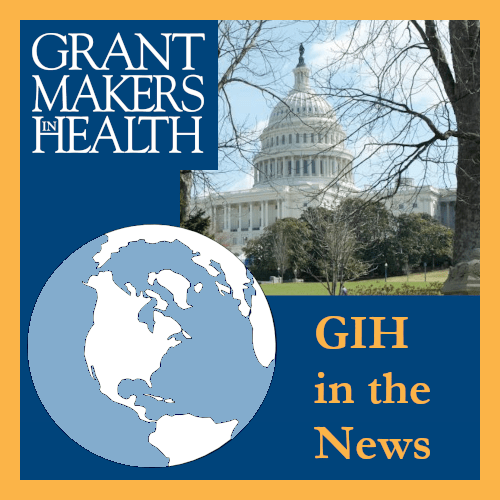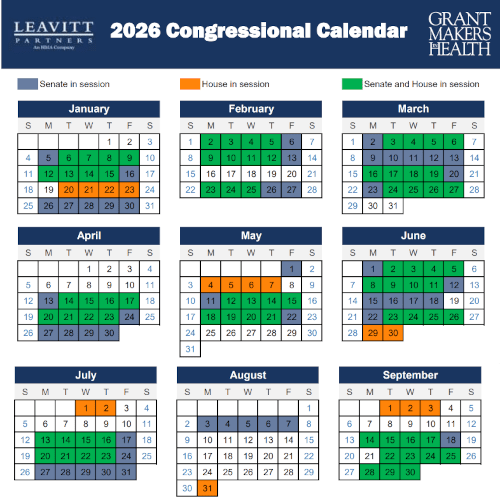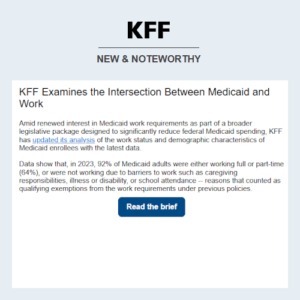Deadlines in Health-Related Executive Orders and Presidential Memoranda
This GIH policy resource details many of the health-related executive orders issued by the administration and includes a calendar of upcoming implementation deadlines.
GIH President and CEO Cara V. James Joined The Rural Impact Podcast for a Conversation about the Intersections of Policy and Philanthropy
On December 4, 2025, Cara V. James, President and CEO of Grantmakers In Health (GIH), was featured in an episode of The Rural Impact podcast. She joined Michelle Rathman, host of The Rural Impact and strategic communications advisor in health care policy, for a conversation on the intersections of policy and philanthropy, challenges with rural health funding, and more. “Policies that are impacting rural communities are…
2026 Congressional Calendar
Developed in collaboration with Leavitt Partners, this calendar tracks when each house of congress will be in session in 2026.
GIH Health Policy Update Newsletter
An Exclusive Resource for Funding Partners
The Health Policy Update is a newsletter produced in collaboration with Leavitt Partnersi and Trust for America’s Health. Drawing on GIH’s policy priorities outlined in our policy agenda and our strategic objective of increasing our policy and advocacy presence, the Health Policy Update provides GIH Funding Partners with a range of federal health policy news.
Data Show That The Majority of Adult Medicaid Enrollees are Working
Amid renewed interest in Medicaid work requirements as part of a broader legislative package designed to significantly reduce federal Medicaid spending, KFF has updated its analysis of the work status and demographic characteristics of Medicaid enrollees with the latest data.
Supporting Southern California Wildfire Recovery Efforts
Grantmakers In Health (GIH) is watching with the rest of the country as Southern California continues to battle wildfires devastating communities in and around the Los Angeles metropolitan area. Our thoughts are with the many thousands of people who have been displaced from their homes and seen their neighborhoods and towns destroyed. There is much that philanthropy can do to augment local, state, and federal government recovery efforts. Find out how you can help engage your organization’s support.
Philanthropy @ Work – Transitions – January 2025
The latest on transitions from the field.
The Health Foundation of Central Massachusetts: January 2025
2025 Activation Fund grant opportunity is now open, which provides capacity-building support for organizations working to address the community-identified health needs of Central Massachusetts residents and workers. With grants typically ranging between $60,000 and $125,000, the Activation Fund supports discrete, one-year projects in Central Massachusetts aimed at helping organizations advance to their next level of capacity and effectiveness that can be sustained over time.









